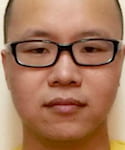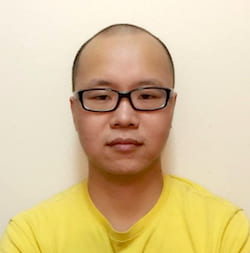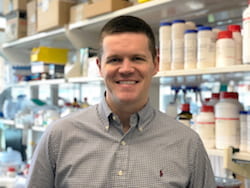NEWS RELEASE
Editor’s note: Links to images for download appear at the end of this release.
David Ruth
713-348-6327
david@rice.edu
Mike Williams
713-348-6728
mikewilliams@rice.edu
Rice recruits two faculty for cancer research
Cancer Prevention and Research Institute of Texas helps bring Yang Gao, Kevin McHugh to Houston
HOUSTON – (May 20, 2019) – Rice University will add two tenure-track faculty members this year with the help of grants from the Cancer Prevention and Research Institute of Texas (CPRIT).
Structural biologist Yang Gao and bioengineer Kevin McHugh will both start on July 1, with offices and labs at the BioScience Research Collaborative. Rice won a pair of $2 million CPRIT grants to recruit them to the university.
Gao will join Rice from the National Institutes of Health (NIH) Laboratory of Molecular Biology, a branch of the National Institute of Diabetes and Digestive and Kidney Diseases. He earned an undergraduate degree at the University of Science and Technology of China and his doctorate at Iowa State University.
Gao turned to structural biology as a postdoctoral researcher at NIH.
“We look at how proteins work on DNA, how they replicate and how they repair DNA,” he said. “When this process goes wrong, it leads to all kinds of diseases, most importantly cancer.”
At Rice, he plans to further his analysis of key proteins in DNA replication and repair, of mutations generated when the process fails and of replication/repair pathways for cancer treatment.
McHugh comes to Rice from the Langer Lab at Massachusetts Institute of Technology, where he is a senior postdoctoral associate. He earned his undergraduate degree at Case Western Reserve University and his doctorate at Boston University, both in biomedical engineering.
McHugh focuses on biomaterials for drug delivery and regenerative medicine. He was lead author of a September 2017 Science paper on 3D printing of fillable microstructures for drug delivery.
“As a postdoc, my focus has been on a single-injection vaccine to get the specific release kinetics that will confer some benefit for the developing world, where you don’t necessarily get to see a patient more than once,” he said.
McHugh plans to adapt his delivery platforms for immunotherapy drugs called stimulator of interferon gene (aka STING) agonists.
“If we can reignite the immune system inside a tumor, where it’s normally dormant, we can have immunotherapy that is a lot more effective,” McHugh said.
The grants are among more than $31 million CPRIT awarded in the current round to recruit eminent cancer researchers to Texas. CPRIT was approved by state taxpayers in a 2007 ballot initiative, providing $3 billion to support cancer research statewide. To date, the agency has awarded $2.3 billion in grants to Texas researchers, institutions and organizations through its academic research, prevention and product development research programs.
-30-
Follow Rice News and Media Relations via Twitter @RiceUNews.
Related materials:
Rice Department of Bioengineering: https://bioengineering.rice.edu
Rice Department of BioSciences: https://biosciences.rice.edu
Institute of Biosciences and Bioengineering: https://ibb.rice.edu
Images for download:
https://news2.rice.edu/files/2019/05/0520_CPRIT-GAO-WEB.jpg
CAPTION: Yang Gao.
https://news2.rice.edu/files/2019/05/0520_CPRIT-MCHUGH-WEB-1.jpg
CAPTION: Kevin McHugh.
Located on a 300-acre forested campus in Houston, Rice University is consistently ranked among the nation’s top 20 universities by U.S. News & World Report. Rice has highly respected schools of Architecture, Business, Continuing Studies, Engineering, Humanities, Music, Natural Sciences and Social Sciences and is home to the Baker Institute for Public Policy. With 3,962 undergraduates and 3,027 graduate students, Rice’s undergraduate student-to-faculty ratio is just under 6-to-1. Its residential college system builds close-knit communities and lifelong friendships, just one reason why Rice is ranked No. 1 for lots of race/class interaction and No. 2 for quality of life by the Princeton Review. Rice is also rated as a best value among private universities by Kiplinger’s Personal Finance.





